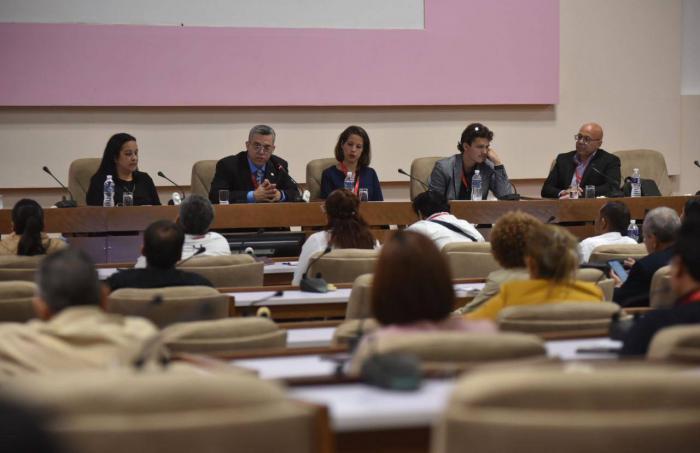
Technological innovation, as well as capacity building and systems integration, are part of the strategy for digital transformation in the Cuban education system.
Fernando Ortega Cabrera, director of Educational Technology of the Ministry of Education (Mined), acknowledged that the country has the necessary conditions to give continuity to the development of the computerization of processes in the sector by making optimal use of the telematic network.
As part of the 19th Pedagogy 2025 Congress, which is in session at the Havana Convention Palace until tomorrow, he highlighted the role of the Ministry of Higher Education and the Ministry of Education in the training of citizens in digital matters.
To this end, they have carried out actions such as the conception of the computer science discipline at all levels and grades of education, the production of contents, which include the Cubaeduca portal and the transmission of 25 hours a week and 36 programs on the Educational Channel, said Ortega Cabrera.
He also referred to the alliances with Copextel and Telecomunicaciones de Cuba S.A. (Etecsa), which guarantee connectivity and equipment, even in rural schools.
He highlighted the complex situation faced by the country with regard to access to Artificial Intelligence (AI) technologies, since many of them are not available in this region, given the restrictions imposed by the blockade imposed by the US government.
In this sense, training actions in cybersecurity and data protection also stand out.
Claudia Felipe Torres, head of the Social and Human Sciences Program of the Regional Office of the United Nations Educational, Scientific and Cultural Organization in Havana, pointed out that this entity has five main programs, all of them involving the IA.
Felipe Torres said that, from the Social Sciences, they focus on the ethics of IA, and urged to encourage consultation of this program, which establishes common principles and values in many areas of general life for education.















